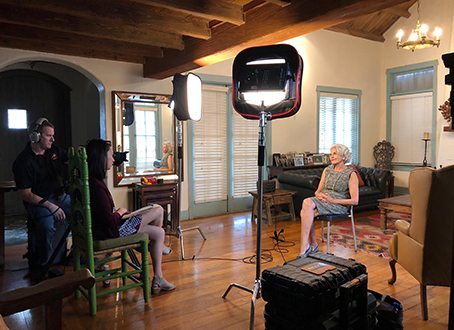This post was written by Allison Fine on behalf of the Case Foundation:
For this third and final Conversational Case Study on America’s Giving Challenge from Beth Kanter and I, we wil pose a question rather than answer one: Is there a “special sauce” for successful participation in online fundraising contests?
Any good sauce is always a combination of ingredients, never just one thing. So is successful social fundraising. Based on our assessment and review of winning efforts in other contests, it seems clear that some of the key ingredients include:
Personal Appeals
People naturally respond more frequently to personal appeals from family and friends. Personal solicitations to existing donors and friends through multiple channels were rated as the most effective methods for fundraising by Challenge participants. Thirty-five percent rated messaging to friends through Facebook as most effective; 32 percent rated personal email to friends, family and colleagues as effective or most effective; and 25% rated email to existing organizational donor base as effective or most effective.
Thankfulness
Many of the winners cited the importance of thanking donors profusely throughout the contest. Food for People not only made personal appeals to their donors but also went to great effort thanking their donors knowing that a well-thanked donor is likely to help solicit their own friends for the cause.
Transparency
Creating public spaces to share information about who is doing what is also a very effective strategy. The Overseas China Education Fund maintained and shared a wiki about who was asked to do what.
Spreading Out the Work
One of the most powerful attributes of social media is the ability of large numbers of people to coordinate their actions as part of a larger event. This type of grassroots activism can be enormously effective for contests or any type of cause-based movement.
Some like Atlas Corps recruited 150 “Campaign Captains” before the contest started. These Captains agreed to get between 5-10 of their friends to give to Atlas Corps during the contest. One of the Captains was so excited about the contest that he made a challenge to his friends that if 100 of his friends donated to Atlas Corps he would go on a 30-mile bike ride in his underwear. His friends responded and he lived up to his promise. Take a look at the bottom and see for yourself!
Other organizations broke their efforts down into bite size pieces for their volunteers by creating templates to use to send messages to their friends, post and comment on blogs, and create their own videos. Here is a template page for the Challenge created by GlobeMed for its supporters.
A Picture is Worth a 1,000 Donors
Most of the winners, including our first Conversational Case Study organization Darius Goes West, chronicled their efforts by video. Students involved in GlobeMed made a series of videos and posted them on YouTube.
Face-to-Face Can’t be Forgotten
Brick and mortar methods still reign as a highly important aspect of online giving campaigns. Five Star worked with their local Chamber of Commerce gathering to set up a laptop and how to give in-person donations.
Contests are important to this concoction because they provide a framework for engaging the community, an urgent deadline for action and, in best cases (such as the Giving Challenge), matching funds for the winners. But in the end, we wonder if there is some other unique quality or combination of these ingredients that makes each person or groups efforts “special” and successful, that turns some combination of activities into a community of energetic people actively engaged in supporting a friend or a cause.
Our questions to our readers, doers, champions and participants, are these:
- In your experience does a concoction, some blend of activities and tasks, exist, that makes some groups or people more successful than others in fundraising contests? And if so, what are they?
- Under what circumstances does some combination of activities work best?
- Is there a tool or action you think might work well in the future that you’d like to test next time (e.g. a geo-location service like Foursquare?)
- Are we trying too hard to be prescriptive in discussing sauces, and should we just let people create their own recipes?
Guest blogger Allison Fine is a writer and activist dedicated to understanding and enhancing efforts to use new, social media tools for social change.





